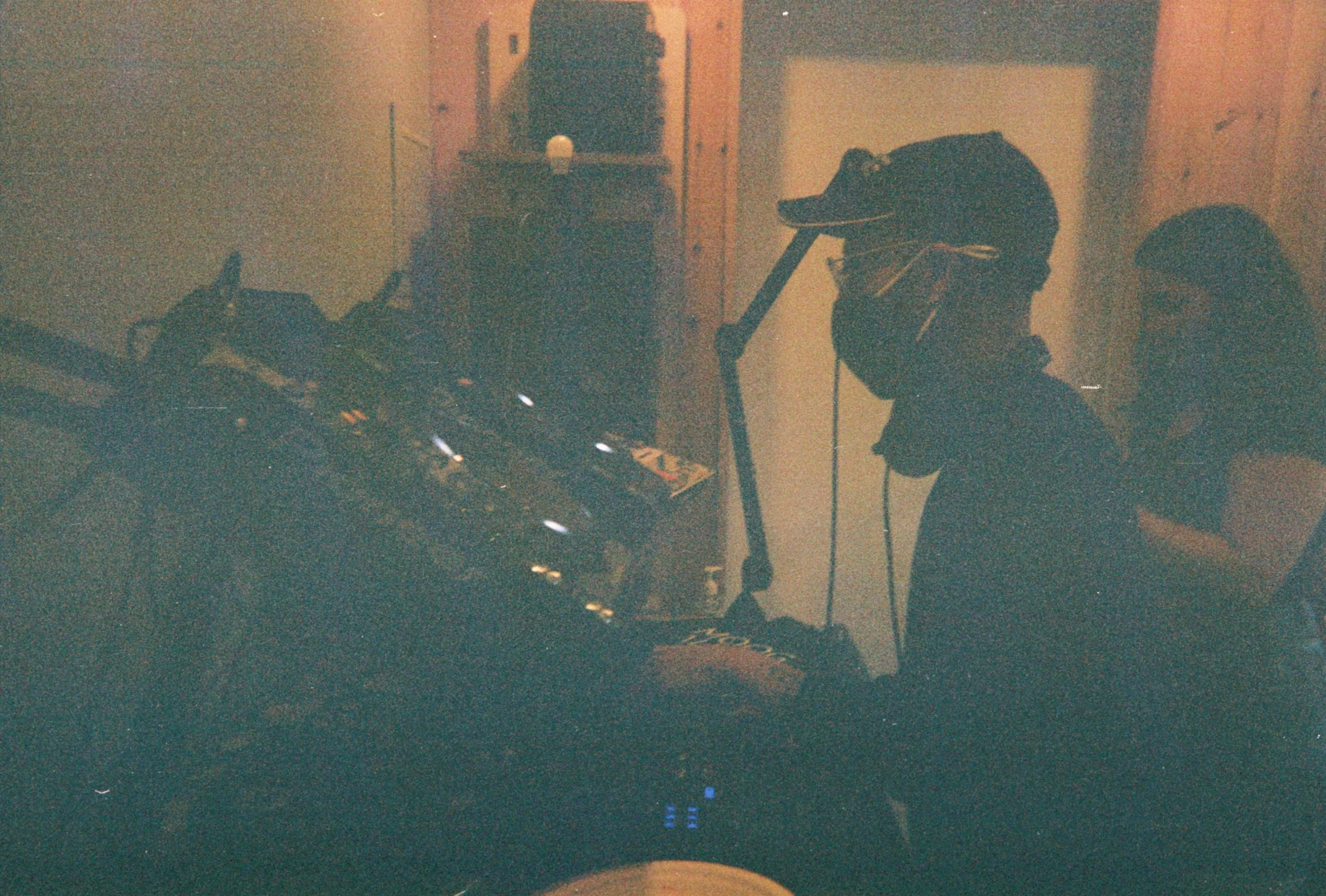How ISO Radio found its way home
/Friends gathered outside ISO Radio's new shipping container in Stackt Market. Photos courtesy Josephine Cruz.
ISO Radio built its name on searching.
Borrowing its title from the popular internet listings shorthand for “In Search Of,” a healthy appetite for exploring opportunities has fueled the online community radio station’s connective aspirations and the adventurous crate digging that feeds its programming since day one.
It’s also how they got their new station headquarters.
Dishing out signal Wednesday through Sunday from Stackt Market’s shipping container fortress at Bathurst and Front Street, ISO has become a hub for cross-pollination amongst the city’s fragmented dance music scenes and a lifeline for locals listening out for quality electronic music programming.
Co-founded in January 2019 by Josephine Cruz and Mike Ho (who also DJ and produce music under the aliases Jayemkayem and Freeza Chin, respectively), the station originally began broadcasting from a space above Summerhill cafe Boxcar Social, but they had to vacate the space two months later when the pandemic shut everything down. For the next 15 months, ISO broadcasts happened in a strictly virtual capacity, with DJs and producers transmitting programming from their apartments. But it wasn’t the same, and many DJs without access to their own equipment let go of their residencies.
“We had always said that this wasn’t a thing we created to be running remotely,” says Cruz. “The point of it was to have a physical space for people to come and have access to equipment and to build friendships and community and relationships with people in person in a space that music brought them to.”
So when vaccinations were still rolling out at a snail's pace a year later and reopening felt like it might never happen, Cruz and Ho started to wonder if it was time to throw in the towel. But not before putting their minds towards making a popup happen and asking some questions around town.
“I started reaching out to a few places — just cold emailing places that I knew had physical space that they could maybe spare — and I sent an email to [Stackt Market founder Matt Rubinoff],” Cruz recalls. ISO ended up with something more long term when Rubinoff tapped into his networks and connected the broadcasters with a container from Port Carling, ON-based Ballance Containers, a company specializing in modern, fully finished, prefabricated shipping containers designed to meet municipal building codes for residential, commercial, and event usage.
The modest 130-square-foot container is just big enough to house a table with ISO’s DJ equipment (a DJ mixer, CDJs, two turntables) all of their broadcasting gear, and a couple of seats (Cruz says it comfortably fits four people), but it’s fully heated for the colder months, and in the summer they can open the glass sliding door and friends can hang outside.
Situated just a kickflip away from Stackt’s skatepark in the parking lot, the space is surrounded by open air, so the potential for small outdoor gatherings is there, too.
When ISO established themselves in the space in June, they announced their arrival with a 10-hour Pride broadcast with local queer collective Yohomo.
Cruz says ISO’s future at the container is uncertain, but the partnership with Stackt offers important peace of mind.
“They’ve said that if it’s not this container forever, they’re gonna try to figure out another solution. So it’s nice to have that support.”
Without a revenue source, ISO’s options were limited from the start, but Cruz and Ho also didn’t see a path to public funding. There were few if any streams in the grant system that applied to what ISO does, and navigating the grant system can be a career in itself.
“We’re not an event, we’re not a showcase, we’re not a festival, it’s not a show in-person,” Cruz explains. The pandemic has prompted more granting bodies to create funding opportunities for digital activations and live streaming, but when ISO was getting started, opportunities were scarce.
“When I talked to a few people at different funding bodies before the pandemic, they were like, ‘basically the place that you fit in is kind of in an experimental stream, almost.’”
Recognizing that underground music communities can often be wary of approaching private backing, on November 27, Cruz is facilitating a workshop aimed toward helping break down the barriers that can prevent projects from connecting with private funding from brands and other sponsors.
“In Toronto and in Canada, so much of our creative economy is supported by brands, whether that’s overt or whether that’s behind the scenes. I think it’s just something that you have to accept a little bit if you wanna do stuff here, and figure out how you wanna work within that system. I don’t see it as anything different than the grant system.”
The main distinctions are the origin of the source capital and the deliverables sought after in the exchange, but in cases like ISO’s, private partnerships can be a means of converting private wealth into a public good.
Having worked with brands like Luminato, NXNE, Red Bull and others, in the workshop, Cruz will speak to ISO’s journey as well as her own, approaching the Stackt partnership and some of the communications that led to it (pitches, cold calls) as a case study and help registrants build pitch building toolkits of their own.
The main hurdle, Cruz says, can often be measuring opposing goals against each other and arriving at a mutually beneficial and positive experience for everyone involved.
“Something like ISO is not a revenue generating thing, and it never will be. That’s not the purpose of it, whereas a lot of companies and brands, that is their purpose. They’re selling something,” Cruz offers.
For Cruz, that often translates to exposure in exchange for support.
“Quite often it’s the social capital, or a community of believers that you have that brands or funders want to leverage or get exposure to,” she says. “If I’m x brand person and I’m like, ‘hey, I want to get my brand out in front of a community of musicians and artists,’ a surefire way to do that would be to approach a community like ISO and be like, ‘how can we work together to get some visibility for us and to support something that you’re doing?’”
The deliverables vary, but for Cruz, it all comes down to closely evaluating how different value sets compare with each other, because any collaboration ultimately reflects back on the parties involved.
“I think it’s just figuring out a way to leverage what you have that they want but in a way that’s respectful of your project, respectful of the people involved and that feels authentic,” Cruz says. “It’s nice to get money and secure a bag, but there’s also an integrity in your project that you have to preserve and protect in that process to yourself.”
Josephine Cruz’s ‘From Ideation to Activation: Attracting Resources to Bring Your Project to Life’ workshop runs November 27, 2021. The same day, Cruz also moderates a panel titled ‘Tune Up Toronto: Hip Hop & DIY Building Community & Career in Toronto’s Independent Music Spaces’ as part of Together Apart’s conference programming.
ISO Radio brings the dance party to Together Apart November 26 with an ace lineup of DJs, including Ace Dillinger, Rafael Khan, and Sofia Fly.
More information at toronto.paris




